The refusal of Massachusetts African-American troops to accept pay and bounties that were less than what was given to other regiments meant that many of the soldiers went without pay for almost eighteen months.
Despite assurances given to the newly enlisted soldiers of the 54th and 55th infantry regiments that they would receive the same pay, equipment, and bounties as other Massachusetts soldiers, United States paymasters were ordered to pay them three dollars less each month. The men refused to accept the lesser amount. In November 1863, the Massachusetts legislature, at the urging of Governor Andrew, appropriated enough money to make up the difference in the soldiers’ pay, but again the regiments refused to accept it.
Many of those who marched in these regiments from this Commonwealth, have been worn out in service, or have fallen in battle on James Island, in the assault upon Fort Wagner, or in the affair of Olustee, yielding up their lives for the defence [sic] of their native country, in which they had felt their share of oppression, but from which they never received justice.
~ Governor Andrew’s letter to President Lincoln, May 13, 1864
”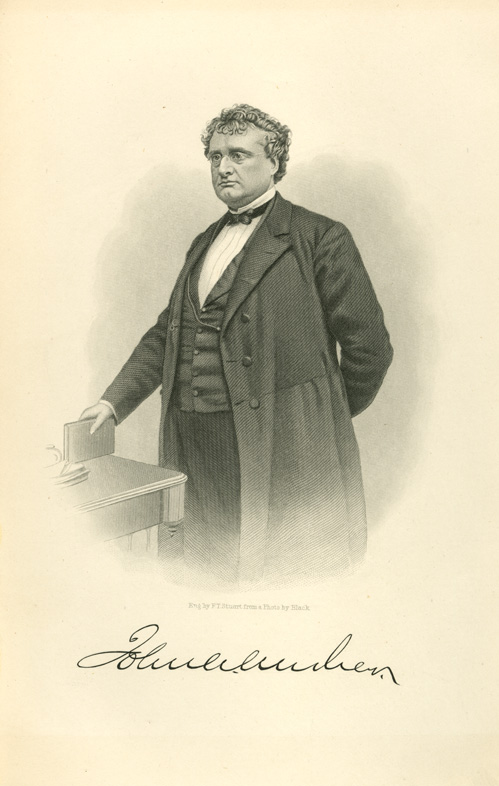
Governor John Albion Andrew
Governor Andrew pressured the federal government to end this discrimination, using Reverend Samuel Harrison of Pittsfield, a chaplain in the 54th Regiment, as a test case. After much wrangling, and a favorable opinion from the U.S. Attorney General, Congress passed legislation in July 1864 that authorized equal pay and benefits for African-American soldiers. The Massachusetts men were paid off in October, allowing them to finally send money home to their families.
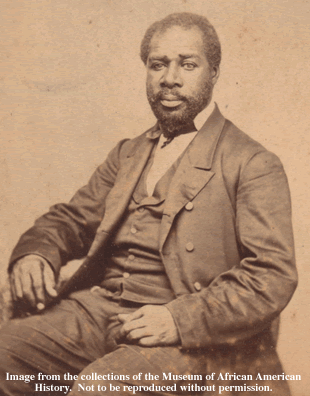
Reverend Samuel Harrison
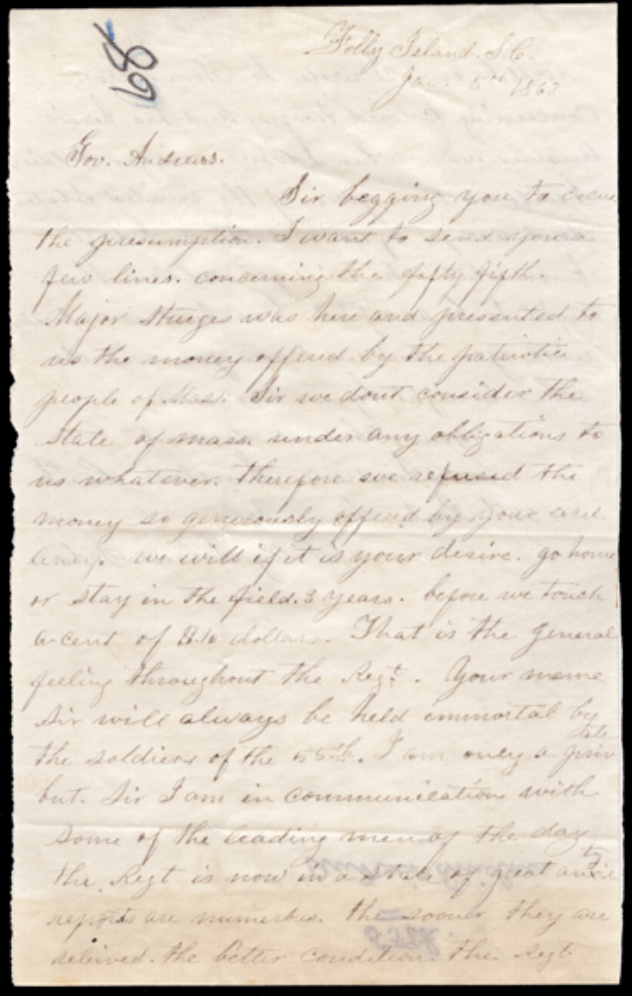
Letter of Andrew Sinclair
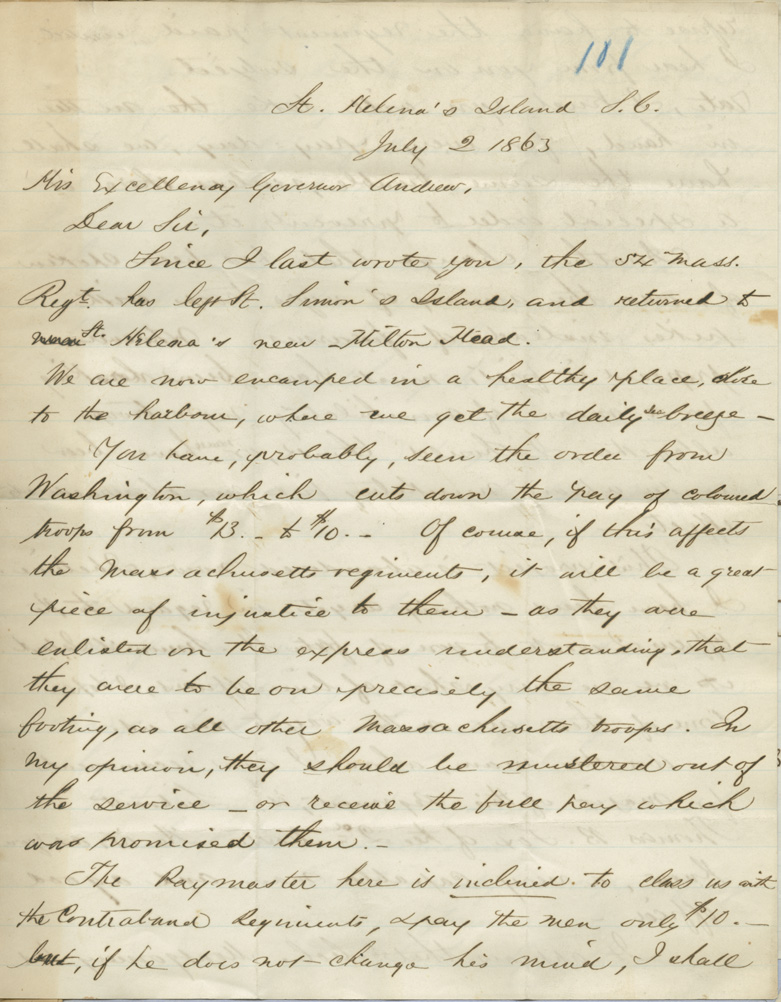
Letter of Robert Gould Shaw
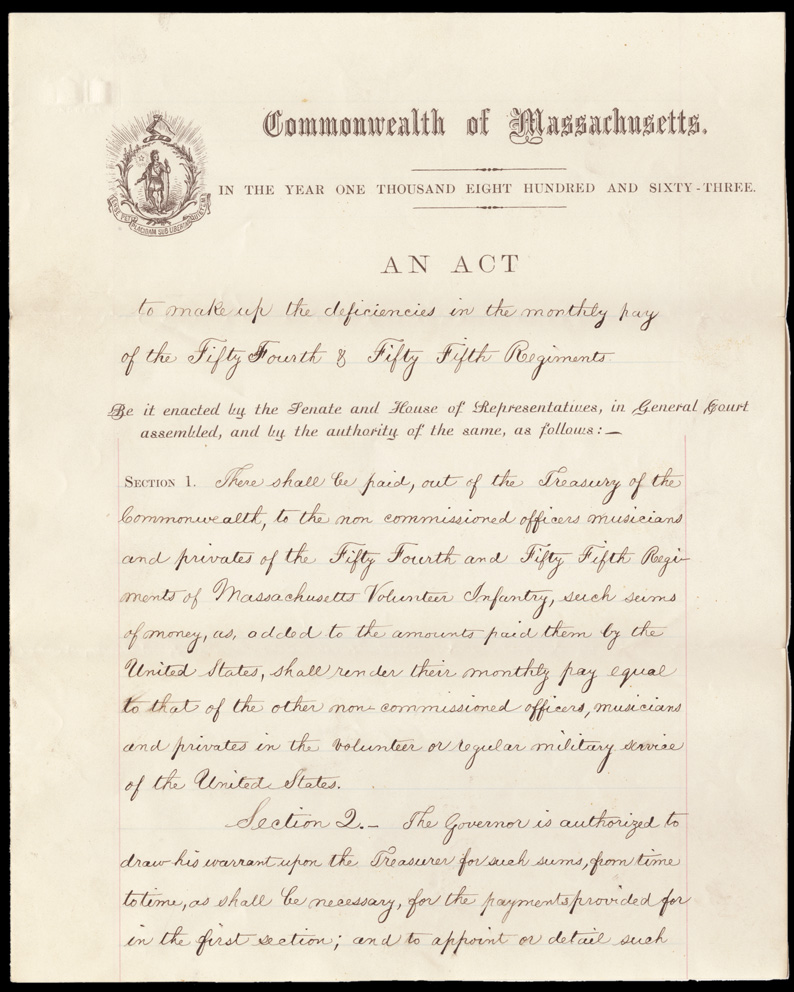
Act making up the deficiencies in the monthly pay of the 54th and 55th Regiments

Letter of Robert Gould Shaw
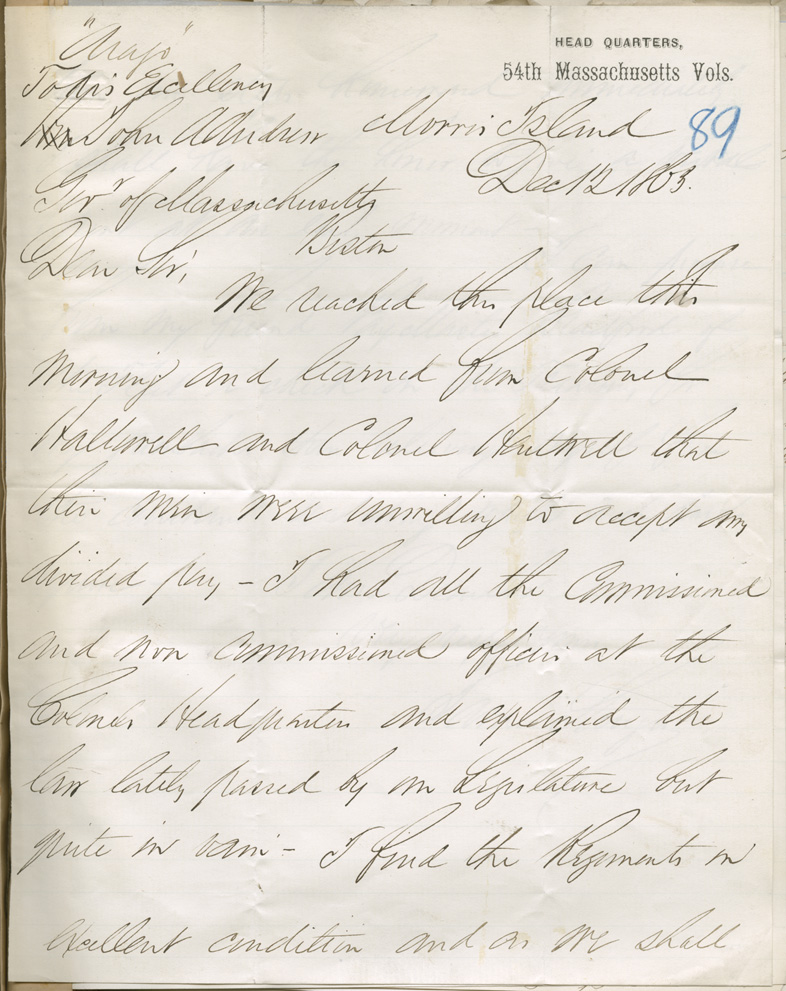
Letter of Major James Sturgis

Letter of Andrew Sinclair
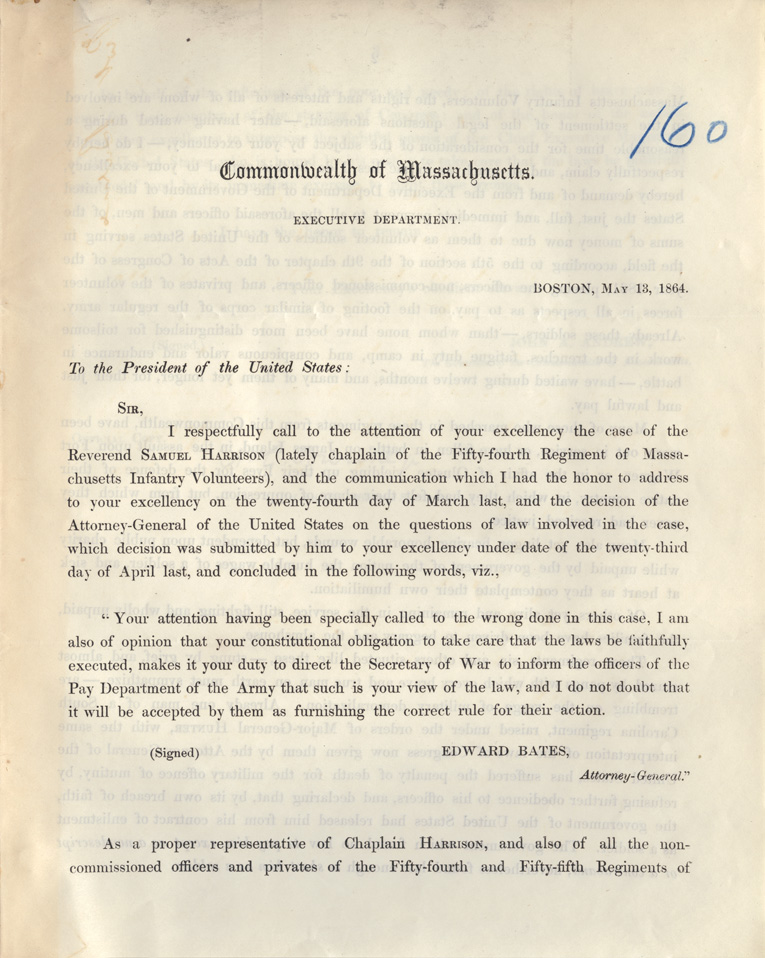
Letter of Governor Andrew
